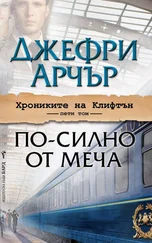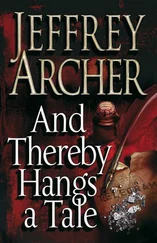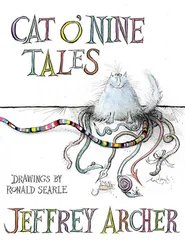“Hang on, sir,” said Lieutenant Jackson. “I think I can see someone in the distance.”
Ralph crawled back, fearing the worst. “He’s about a hundred yards away,” added Jackson, “and heading straight for us.”
“Where?” said Ralph, leaping up and staring across the barren terrain.
“Get down, sir,” shouted the lieutenant, but he was too late, because the bullet hit Captain Ralph Dudley Dawson, Esq. in the forehead, and he sank back down into the mud just as Carrigan dived into the trench.
The Duke of Cornwall’s Light Infantry continued their advance toward Berlin at first light, while a coffin containing the body of Captain Dudley Dawson was shipped back to England, along with a letter of condolence from his commanding officer. The colonel was able to assure the grieving widow that her husband had sacrificed his life while serving his country on the front line.
The fifth battalion of the Duke of Cornwall’s Light Infantry won a great battle that day, and a year later at a service held in Truro Cathedral, the name of Normandy was added to the regimental colors.
Among those seated in the congregation was Corporal Jamie Carrigan MM, along with his wife and two children, Rupert and Susie. Unfortunately, Ralph Dudley Dawson, Esq. hadn’t considered the possibility of mortality, and died intestate. His wife, being the next of kin, inherited a thousand-acre estate, ten thousand sheep, Nethercote Hall, and all his other worldly goods.
Jamie Carrigan never thought of himself as the local squire, just a farm manager who’d been lucky enough to marry the only woman he’d ever loved.
It would never have happened if his uncle Bert hadn’t taken him to the zoo.
Joe Simpson wanted to play football for Manchester United, and when he was selected to captain Barnsford Secondary Modern, he was confident it could only be a matter of time before United’s chief scout would be standing on the touchline demanding to know his name. But by the time Joe walked onto the pitch for the last match of the season, not even the Barnsford Rovers coach had bothered to come and watch him, so with only one GCE (maths), he was at a bit of a loss to know what he was going to do for the rest of his life.
“You could always join Dad as a council car park attendant,” suggested his mum. “At least the pay’s steady.”
“You must be joking,” said Joe.
It only took a month and seven job interviews for Joe to discover it was the council car park, or stacking shelves at the local supermarket. Joe was just about to sign on the dole and join what his dad called “the great unwashed” when he was offered a job at the Co-op.
Joe lasted ten days as a shelf stacker before he was shown the door, and he had to admit to his mum that perhaps it hadn’t helped when he put two hundred cans of Whiskas next to the prime cuts of beef.
“A vacancy’s come up at Lakeside Drive car park,” his father told him, “and if you want, lad, I could have a word with boss.”
“I’ll do it for a couple of weeks,” said Joe, “while I look for a real job.”
Joe wouldn’t admit to his father that he rather enjoyed being a car park attendant. He was out in the open air, meeting people and chatting to customers while working out how much to charge them once they’d told him how long they wanted to park; something his dad had never got the hang of, but then he hadn’t got an GCE in maths.
Joe quickly got to know several of the regulars, and the cars they drove. His favorite was Mr. Mason, who turned up in a different vehicle every day, which puzzled Joe, until his dad told him he was a second-hand car dealer, and he probably liked to know what he was selling.
“Your dad’s right,” Mr. Mason told him. “But it’s even more important to know what you’re buying. Why don’t you come over to the showroom sometime, and I’ll show you what I mean?”
The next time Joe had a day off, he decided to take up Mr. Mason’s offer and visit the car showroom. It was love at first sight when he saw the Jaguar XK120 in racing green, and second sight when he saw the boss’s bookkeeper in dashing red, but neither was available for a council car park attendant. Not least because Molly Stokes had seven GCEs and had also taken a bookkeeping course at Barnsford Polytechnic.
From that day on, Joe found any excuse to visit Mr. Mason, not to see the latest models, but to talk to the first girl he didn’t think was soppy. Molly finally gave in and agreed to go to the cinema with him to see John Wayne in The Quiet Man, not Molly’s first choice. The following week they went to see Spencer Tracy in Pat and Mike, her choice, and Joe accepted that was how it was going to be for the rest of their lives.
A year later, Joe proposed to Molly on bended knee, and even bought an engagement ring from H. Samuel, which he’d spent two weeks’ salary on. But she turned him down. Not because she didn’t want to marry Joe, but she wouldn’t consider marriage until they could afford a place of their own.
“But if we get married,” said Joe, “we can put our name down for a council house, and not have to go on living with my parents.” Molly didn’t want to live in a council house.
And then the worst thing that could happen, happened. Joe got the sack.
“It ain’t that you’re no good at the job, lad,” said the supervisor, “but bosses at council want cutbacks, so it’s last in, first out, and as you’ve only been with us for a couple of years, I’ll have to let you go. Sorry about that.”
Just when Joe thought it couldn’t get any worse, Molly announced she was pregnant.
They were married a month later, his dad having told him in no uncertain terms, “There’s never been a bastard in our family, and we won’t be startin’ now.”
Once the banns had been read, the wedding was held three weeks later at St. Mary the Immaculate parish church, with a reception afterward at the King’s Arms across the road. No expense spared. The girls drank Babycham, while the lads downed pints of Barnsford bitter and cleared the pub out of crisps and pork pies. Everyone had a good time. But when the newly married couple woke up in Mr. Simpson’s spare room the following morning, Joe was still on the dole, and Molly was still pregnant, and they didn’t have enough money for a honeymoon, even a weekend in Blackpool.
That was when their uncle Bert, without intending to, changed their whole lives.
Uncle Bert worked at Barnsford Zoo, where he cleaned out Big Boris’s cage, the lion folks came to see from all over the county. It was at his wedding bash over a pint of bitter that Bert told Joe a job might be coming up at the zoo, and if he popped in on Monday, he’d introduce him to the manager, Mr. Turner.
On Monday morning, Joe put on a clean shirt and a pair of neatly pressed trousers, and borrowed one of his father’s two ties. He was on the top deck of a double-decker bus on his way to the zoo, when he first spotted the piece of land in the distance. He couldn’t take his eyes off it. When he got off the bus, he didn’t head straight for the nearest turnstile, but walked in the opposite direction.
Joe stood and stared at a large plot of waste land that must have had a hundred vehicles parked on it. He spent the day watching as cars, vans, even coaches came and went, filling any space that was available with no rhyme or reason, some of the drivers not even visiting the zoo. An idea was beginning to form in his mind, and by the end of the day, Joe’s only thought was, could he get away with it?
“So did Mr. Turner offer you the job?” asked Molly when Joe arrived back just in time for tea.
“I never saw Mr. Turner,” Joe admitted. “Something came up.”
Читать дальше
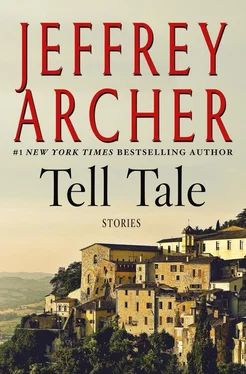
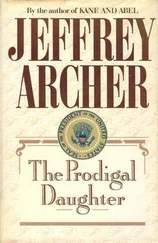

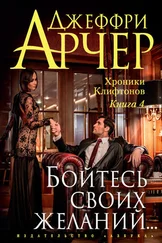
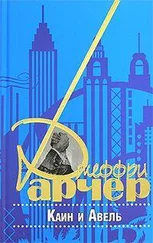
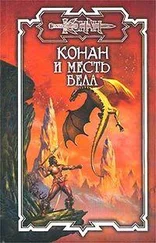
![Джеффри Арчер - The Short, the Long and the Tall [С иллюстрациями]](/books/388600/dzheffri-archer-the-short-the-long-and-the-tall-s-thumb.webp)
